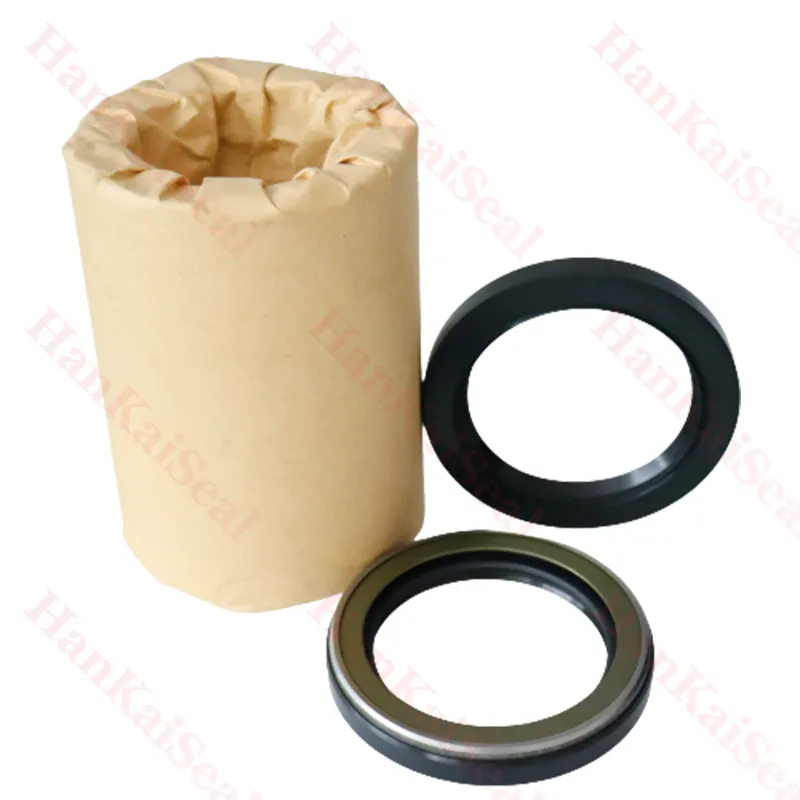Nov . 18, 2024 04:09 Back to list
what is the purpose of oil seal
The Purpose of Oil Seals
Oil seals, also known as lip seals or grease seals, play a crucial role in various mechanical systems and components. These seals are essential for maintaining the integrity of machinery by preventing the leakage of lubricants and contaminants while ensuring smooth operation. In this article, we will explore the purpose of oil seals, their types, applications, and the importance of proper sealing in mechanical systems.
Understanding Oil Seals
An oil seal is a component that is used to seal the interface between two surfaces, typically where a rotating shaft passes through a housing. The oil seal is designed to retain oil or grease within a machine while preventing dust, dirt, and other contaminants from entering. The basic construction of an oil seal includes a flexible lip that contacts the shaft and a casing that holds the lip in place. The seal is typically made from materials such as rubber or synthetic polymers, which provide durability and resistance to wear.
Primary Purposes of Oil Seals
1. Prevention of Lubricant Leakage The primary purpose of an oil seal is to keep lubricants contained within a system. Lubricants reduce friction and wear between moving parts, enhancing the efficiency and lifespan of machinery. Without effective sealing, oil can leak out, leading to insufficient lubrication and subsequently causing mechanical failures.
2. Contaminant Exclusion Oil seals act as barriers against external contaminants such as dirt, dust, and moisture. These particles can cause significant damage to the internal components of machinery. By preventing the ingress of contaminants, oil seals help maintain the cleanliness of lubricated areas, thereby promoting better performance and longevity.
3. Pressure Retention In some applications, oil seals are also used to maintain internal pressure within a system. They contribute to creating a stable environment for the lubricant, allowing it to perform its functions effectively. This is particularly important in hydraulic systems where pressure control is critical for operations.
4. Reduction of Friction The design of oil seals not only helps in sealing but also minimizes friction between the seal lip and the rotating shaft. Properly functioning oil seals help to ensure that machinery operates smoothly, reducing energy consumption and wear on components.
Types of Oil Seals
Oil seals come in various designs and sizes, tailored for different applications. Some common types include
what is the purpose of oil seal

- Single Lip Seals These seals have one sealing lip and are the most commonly used type for general purposes
. They are effective in retaining lubricants and excluding contaminants.- Double Lip Seals These seals have two sealing lips, providing enhanced protection against contamination and leakage. They are often used in environments with higher levels of dirt and moisture.
- Rotary Seals Specifically designed for rotating shafts, these seals can handle varying speeds and pressures, making them suitable for automotive and industrial applications.
Applications of Oil Seals
Oil seals are ubiquitous in various industries, including automotive, aerospace, manufacturing, and energy. They are used in applications such as
- Automobiles In vehicles, oil seals are crucial for preventing engine oil leaks, ensuring that components such as crankshafts and camshafts operate smoothly.
- Industrial Machinery Heavy machinery uses oil seals to protect bearings and gearbox components, helping maintain performance and efficiency.
- Aerospace In aerospace applications, oil seals are essential for protecting critical systems from external contaminants and ensuring the reliability of aircraft engines.
Conclusion
In summary, oil seals are vital components that serve multiple purposes, including preventing lubricant leakage, excluding contaminants, retaining pressure, and reducing friction. Their role in maintaining mechanical integrity is critical for the efficient operation of various machinery across multiple industries. Proper selection, installation, and maintenance of oil seals contribute significantly to the longevity and reliability of mechanical systems, making them an indispensable element in engineering design and operations.
-
TCN Oil Seal Metal Ring Reinforcement for Heavy Machinery
NewsJul.25,2025
-
Rotary Lip Seal Spring-Loaded Design for High-Speed Applications
NewsJul.25,2025
-
Hydraulic Cylinder Seals Polyurethane Material for High-Impact Jobs
NewsJul.25,2025
-
High Pressure Oil Seal Polyurethane Coating Wear Resistance
NewsJul.25,2025
-
Dust Proof Seal Double Lip Design for Construction Equipment
NewsJul.25,2025
-
Hub Seal Polyurethane Wear Resistance in Agricultural Vehicles
NewsJul.25,2025
-
The Trans-formative Journey of Wheel Hub Oil Seals
NewsJun.06,2025
Products categories
















